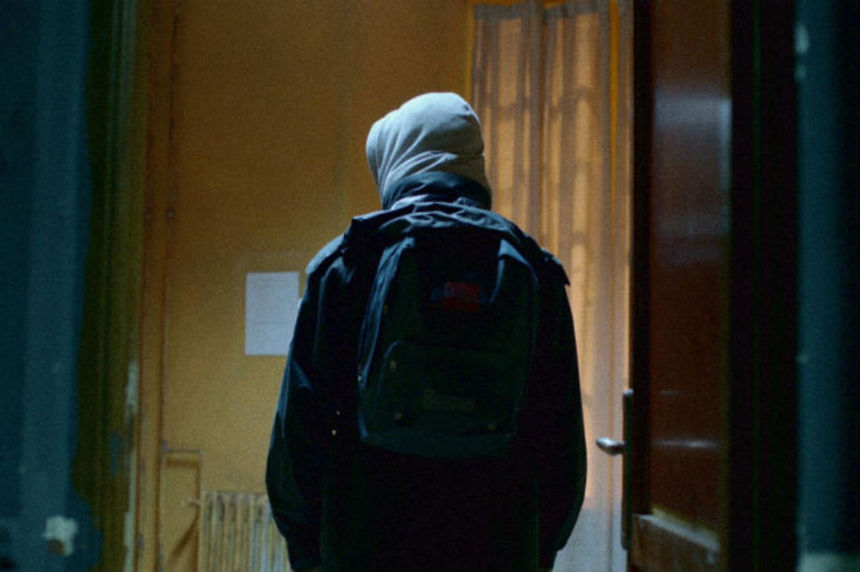SXSW 2012 Review: THE IMPOSTER Untangles a Bizarre, Riveting True Story

By untangling a truly bizarre story of deception, intention, and motivation, The Imposter overcomes its 'TV doc-pop' style, though it still feels like a sizzle reel collection of highlights assembled to fit between commercial breaks.
On the plus side, the highlights are well-chosen and the pace is snappy. In 1994, a 13-year-old boy named Nicholas Barclay disappears without a trace in San Antonio, Texas. It's a tragedy, especially as the months and years pass without any resolution to the case. His family grieves for him, suspecting, or even assuming, that he's dead, but lacking the closure that would come with the discovery of a body.
Three years and a few months later, authorities in Spain receive an anonymous phone call from someone claiming to have found a lost child. The police investigate, whereupon an interview subject is presented on camera, a gentleman who says that he was in desperate circumstances at the time, and pretended to be younger than he was in order to secure a safe place to stay. As the authorities probe further into his case, he hits upon a nefarious idea: He will pretend to be an American teenager who was reported missing years before. And it just happens to be Nicholas Barclay that he will impersonate.
At this point of the film, no personal background has been provided on the gentleman other than his age (23) at the time, but he speaks in a very personable, apparently sincere manner about his decision to hijack someone else's identity, without any deep thought about the ramifications of his deception, either to himself or, especially, to the family of the missing child.
Nicholas' family is thunderstruck. His sister, realizing that her mother could not handle traveling to Spain to confirm the identity of the man claiming to be Nicholas, makes the trip. Even though there are a number of marked physical differences -- for one thing, Nicholas had blue eyes, while the gentleman has brown eyes -- Nicholas' sister states firmly that the stranger is, actually, the missing Nicholas. U.S. officials dutifully go along, issue the man a new passport in Nicholas' name, and allow him to return to Texas with Nicholas' sister.
From there, the story takes a number of strange turns, each more intriguing than the last. As much as anything, The Imposter questions accepted notions of identity. Of all people in the world, shouldn't parents recognize their own children, no matter what? Could grief and the desire to believe affect one's better judgment? Or is something evil afoot?
As I implied at the outset, director Bart Layton and editor Andrew Hulme employ a fast-cutting method of storytelling, with an abundance of extreme close-ups and pensive, silent inserts of the interview subjects. I have a natural aversion to the style, which usually makes me feel distracted from the fact that a lot of ground is being covered in shallow fashion.
Yet that style seems to work with The Imposter, fostering the notion that if you talk fast enough, you might be able to deceive people into believing you for a while, at least until they've had a chance to think about what you've said. The conversation in The Imposter is brisk and sometimes not to be believed, but it's an amazing story that left my head spinning.
The Imposter had its world premiere at Sundance before screening multiple times at SXSW. It will receive a theatrical release in the U.S. later this year. The New Yorker published a fascinating article (linked below) about the main subject in 2008, though it may be best to watch the movie before reading the article.







